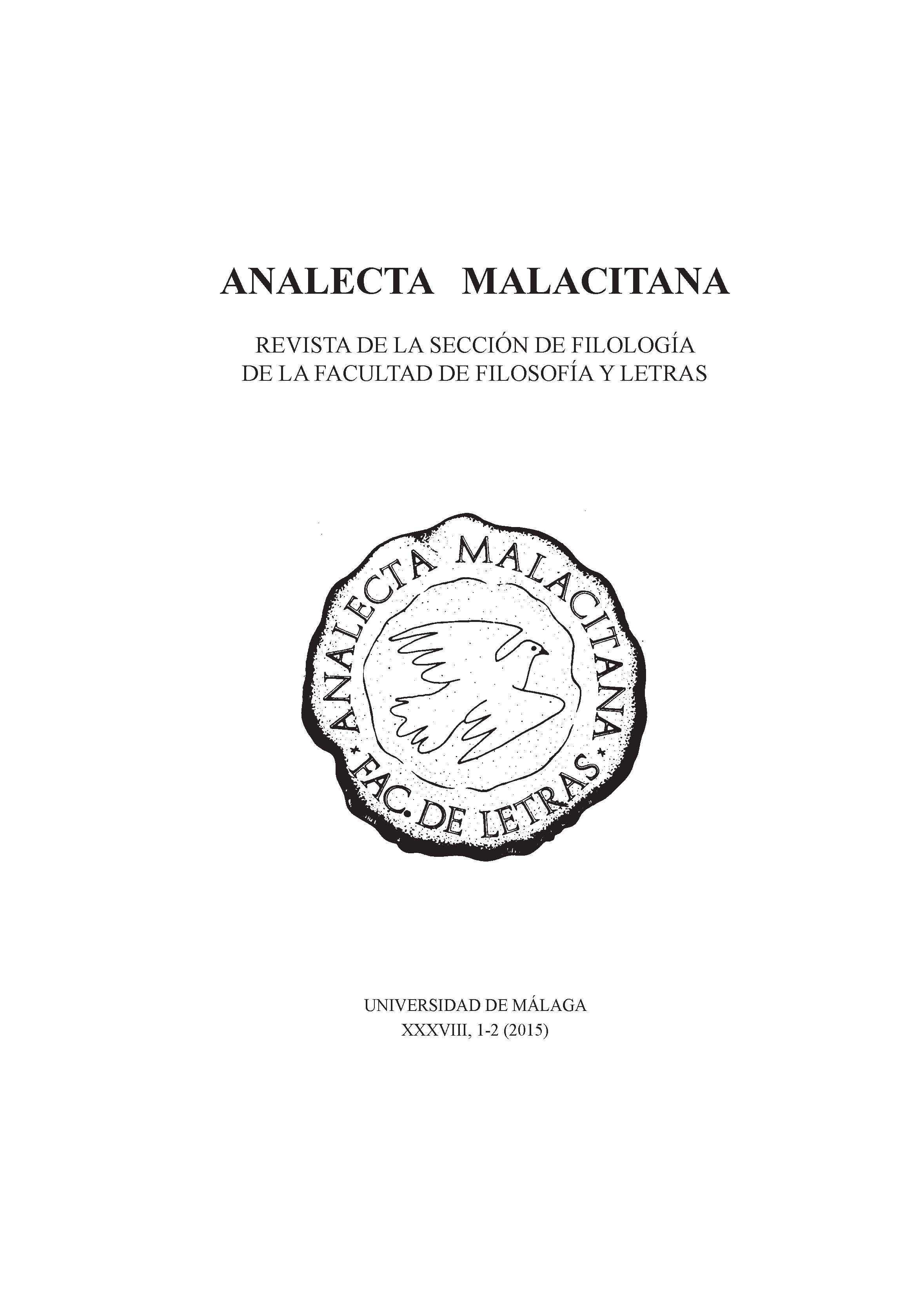Tra la Sicilia e la Spagna, un tratatto sull'impostura: L'antimonio di Leonardo Sciascia
DOI:
https://doi.org/10.24310/analecta.v38i1.4346Abstract
RESUMEN: La obra del escritor italiano Leonardo Sciascia es, en su globalidad y en su profundidad, una continua re? exión acerca de las (in)justicias y de la búsqueda de la verdad. En distintas ocasiones, sus palabras se han dirigido hacia algunos episodios bélicos del pasado: las verdades, como también las mentiras, han sido utilizadas por Leonardo Sciascia con el ? n de realizar un verdadero tratado sobre las imposturas surgidas durante los con? ictos civiles. El presente trabajo pretende analizar una de sus obras más polémica, L’Antimonio y marcar las relaciones literarias y culturales que han protagonizado desde esta obra la historia social y civil de España e Italia.
ABSTRACT: The work of the Italian writer Leonardo Sciascia is, in its globality and its depth, a continuous re? ection on the (in) justices and the search for truth. On several occasions, his words were directed towards some warlike episodes on the past: truths as lies, have been used by Leonardo Sciascia in order to make a real treatise on the deceptions caused by civil con? icts. This paper aims to analyze one of his most controversial work, L’Antimonio and marks the literary and cultural relations that have shaped the social and civil history of Spain and Italy.
Downloads
Metrics
Downloads
Published
How to Cite
Issue
Section
License
In the Analecta Malacitana Journal we are clearly committed to a policy of open access to scientific knowledge (See the Berlin Declaration).
Those authors who have publications with this journal accept the following terms:
This journal provides immediate free access to its content on the principle of making research freely available to the public. All content published on Margins is subject to the Creative Commons Attribution-No Derivatives 4.0 International license.
It is the responsibility of the authors to obtain the necessary permissions of the images that are subject to copyright.
Authors whose contributions are accepted for publication in this journal will retain the non-exclusive right to use their contributions for academic, research, and educational purposes, including self-archiving or deposit in open access repositories of any kind.
The electronic edition of this magazine is edited by the Editorial of the University of Malaga (UmaEditorial), being necessary to cite the source in any partial or total reproduction.
The authors may adopt other non-exclusive license agreements for the distribution of the version of the published work (for example: deposit it in an institutional telematic archive or publish it in a monographic volume) provided that the initial publication in this magazine.
Authors are allowed and recommended to disseminate their work through the Internet (for example: in institutional telematic archives or on their web page) before and during the submission process, which can produce interesting exchanges and increase citations to the published work. (See The effect of open access.)





25.png)
